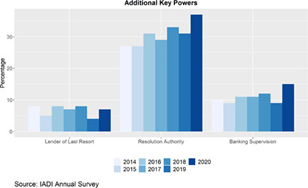Fintech activities in Vietnam
In Vietnam, the trend of fintech development is clearly shown through the technology start-up company and non-bank organizations with technological strength that participate in various fields of finance-banking sector (fintech company) in the form of developing solutions to support banking activities without directly providing services to end-users, or directly providing new solutions independently.
Specifically, the last few years have witnessed the formation and development of a large number of fintech companies participating in many different fields and activities such as payments and peer-to-peer lending (P2P Lending), credit scoring, personal finance management... The fintech field also attracts the participation of many large domestic technology companies and enterprises, often companies with strengths in technology through direct investment activities to form fintech companies; or indirectly through establishing investment funds and creating incubators to support fintech startups.
The development of mechanisms and policies related to fintech in Vietnam is still in the research and controlled testing stage. According to expert assessments, the new state management agency focuses on monitoring, market research and international experiences. However, there are some exceptions such as in the field of payment, the legal basis was developed quite early and fully formed.
In recent years, the Government has issued decrees and regulations related to payment activities and payment intermediary services, starting from Decree No.101/2012/ND-CP dated November 22, 2012 of the Government on non-cash payments. After summarizing and evaluating the results of implementation of this Decree, along with market changes, the Government has added regulations that non-bank organizations are licensed by the SBV will participate in providing payment intermediary services in Decree No.80/2016/ND-CP dated July 1, 2016.
On the SBV's side, on December 11, 2014, the Governor of the SBV issued Circular No.39/2014/TT-NHNN guiding payment intermediary services, followed by Circular No.23 /2019/TT-NHNN dated November 22, 2019, amending and supplementing a number of articles of Circular No.39. These two documents provide detailed regulations on payment activities, including conditions for receiving a license to provide payment intermediary activities as well as regulations on e-wallet supply activities.
Recently, Vietnam has made more proactive moves in managing and supporting the fintech sector such as: the Government issued Decision No. 316/QD-TTg dated March 9, 2021 on approving the pilot implementation using telecommunications accounts to pay for small value goods and services (under 10 million VND per month); The Governor of the SBV issued Circular No.16/2020/TT-NHNN dated December 4, 2020 amending Circular No.23/2014/TT-NHNN, which allows the experimental application of electronic identification technology (e.g. -KYC) to open a payment account with a small transaction volume (under 100 million per month), or Circular No.06/2023/TT-NHNN dated June 28, 2023 allowed banks to carry out lending activities by electronic means for small value loans (under 100 million VND ).
The Government also issued Resolution No.100/NQ-CP dated September 6, 2021, approving the proposal to develop a Decree on a controlled testing mechanism for financial technology activities in the banking sector . The SBV is also doing research to form a fintech innovation center (Innovation Hub) with the cooperation of several large banks and businesses. The SBV is also collecting comments on the draft Decree regulating the controlled testing mechanism in the banking sector to improve the fintech ecosystem, create favorable conditions for the new technology and promote deployment cooperation between fintech companies and the banking system.
Besides, the Vietnam banking industry development strategy to 2025, with orientation to 2030 also affirms the need to encourage cooperation in a healthy competitive relationship between banks and fintech companies. It is necessary to promulgate standard regulations for connection between credit institutions and financial technology organizations. Therefore, Vietnam needs to soon build a management framework in the form of a Decree stipulating a testing mechanism for fintech activities to promote innovation, limit unfair competition, prevent legal violations in the name of fintech, and protect the interests of financial consumers.
Deposit insurance activities in the wave of fintech development
In Vietnam, consumer rights are regulated under the Law on consumer right protection. However, the 2023 Law on consumer rights protection still does not have separate regulations for consumers.
Deposit Insurance of Vietnam(DIV) is a financial institution assigned by the State to implement policies to protect depositors at public institutions contributing to ensure the safety of banking operations. Recently, DIV has effectively demonstrated its role through direct and indirect protection of depositors, which are financial consumers. structured, DIV directly protects depositors through the function of reimbursimg depositors when public institutions become insolvent; supervising and examining; participating in supporting, preventing and resolving credit institution failures; improve financial - banking - deposit insurance knowledge organizing policy communication and law on deposit insurance for financial consumers.
With the mission of protecting the legitimate rights and interests of depositors in general - financial consumers in the fintech sector in particular, DIV in the coming time needs to actively transform digitally to match the wave of digital transformation in the banking industry; build and design deposit insurance according to principles consistent with international practices, take this as a basis to better protect the legitimate rights and interests of depositors, contribute to ensure safe development, safety and healthy credit institutions system, specifically:
Firstly, it is necessary to promote the digital transformation process in DIV's operations in accordance with its financial potential, human resources, information technology infrastructure system and connection network . At the same time, clearly define the strategy for building a digital deposit insurance, in accordance with international practices; pay special attention to the component of ensuring information security and safety, especially network security; build, develop and continuously implement digital culture.
Secondly, increase the application of information technology in professional activities such as calculating deposit insurance premiums, supervision, and reimbursement to synthesize, analyze, and process information about public institutions; detect and recommend to SBV promptly resolve violations of regulations on safety of banking operations and risks causing system insecurity.
Thirdly, prioritize deposit insurance policy communication in association with raising public financial awareness through education and dissemination of financial knowledge through digital platforms. platforms. As an organization that protects the right of depositors, DIV can participate in the research process of appropriate measures from the perspective of deposit insurance field; at the same time, actively participate in the process of policy communication and knowledge to the public to improve the financial knowledge base; especially people in remote and isolated areas, vulnerable people that have little opportunity to access information about financial and banking services at reasonable costs and avoid risks.
Fourthly, due to research and gradually expand the deposit insurance policy. With fintech financial products, the most important issue that build and complete the legal framework for managing fintech activities is to clearly identify the participating entities, methods and new financial service products.
Communication Department



























